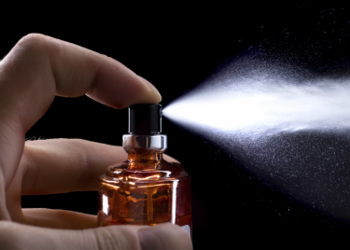Showing Love for the Brethren

The Sabbath truly is a delight. We eagerly anticipate it each week looking forward to the messages we will hear and the opportunity to fellowship with people of like mind and belief. The day reinforces our resolve to continue in this way of life.
Our fellow brethren are very important and special to us all. We pray for one another and try to help each other in times of trouble. To add to the quality of our Sabbath services, many help with set up, clean up, decorations, contribute to potlucks, etc. However, there is one area of service to brethren that is easy to overlook.
Many congregations are aware of fellow members with food allergies. Some of these are even life threatening. Those congregations must be especially careful what they bring to potlucks lest they endanger someone’s life. What is not as easily discerned is another type of allergy.
The March 2009 issue of the Journal of Environmental Health indicated that up to 30 percent of Americans now find perfumes and other cosmetic scents physically irritating. Some studies have shown that up to 72 percent of asthma sufferers find scents can trigger an attack. That means that even in a small group of 10 people, three could have some level of sensitivity, and that number will be increased if there are people in the group who have asthma! Because scents are airborne, in a crowded room (such as at Sabbath services) what anyone wears is spread through the whole room or building through the heating or air conditioning system.
Allergies to scents have increased dramatically since the 1970s. This may be due to the increased number of scented products being used and the complex chemicals in them. Think of all the things we are surrounded by that contain scents to make our world smell better—lotions, soap, laundry detergents, makeup, cleaning products, candles, air fresheners, perfume, after shave, deodorant, scented oils—and the list goes on. Even some so-called “unscented” products may have fragrance to mask odors!
When my family first began attending services, each week several of us (especially my mother) would get a splitting headache in the car on the way to church. We drove two hours on winding roads to get there and assumed that was the cause of the headaches. It was quite some time before we discovered that it was Mom’s perfume that was the culprit. She stopped wearing perfume, and the headaches disappeared.
People with sensitivity to scents may have any of the following reactions: sneezing, runny nose, headache, sore throat, inability to concentrate, eye or nose irritation, hives and eczema. Yet, for a person who has an allergy to a scent, the reaction may be more serious and include dizziness, difficulty breathing, nausea, vomiting, muscle and joint aches. In severe cases, it can cause a person to lose consciousness or trigger anaphylactic shock. For some, the symptoms last for days after the exposure. One member has said that because of her condition, she has lost her sense of smell. Now, even though she knows she is highly allergic to scents, she can no longer tell when she is being exposed to something harmful to her. As a result, she sometimes is sick all week after going to church and being exposed to chemicals.
Some church areas may have the option of providing a “scent free room” for those with allergies. However, this means that those prone to the allergies are isolated and miss an important aspect of services—fellowship. They end up in isolation on the day we are enjoying being with each other.
Considering the seriousness of this condition for some of our brethren, it behooves us to be especially conscious of reducing the impact of Sabbath services on them by limiting the scents we are adding to the air at services. While we all want to smell and look good, we have to be aware of how our grooming may affect someone else’s health.

